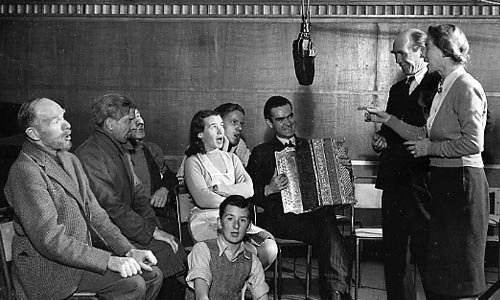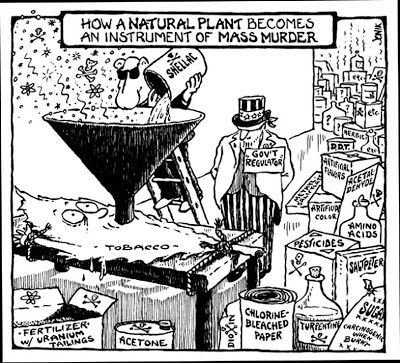'Creative Crime' and the Phytological Analogy *free download*
Samizdat Illegal Press
https://en.wikipedia.org/wiki/Bills_(subculture)
The Undercommons
The undercommons is a place of refusal, rather than a critique—refusal of the terms and conditions that are offered as our only options or choices, or, to quote Harney and Moten again, “not so much the abolition of prisons but the abolition of a society that could have prisons, that could have slavery.”
The Brave Cowboy
Law is a system of rules that are enforced through social institutions to govern behavior.
Laws can be made by legislatures through legislation (resulting in statutes), the executive through decrees and regulations, or judges through binding precedent (normally incommon law jurisdictions). Private individuals can create legally binding contracts, including (in some jurisdictions) arbitration agreements that may elect to accept alternative arbitration to the normal court process. The formation of laws themselves may be influenced by a constitution (written or unwritten) and the rights encoded therein. The law shapes politics, economics, history and society in various ways and serves as a mediator of relations between people.
System D
Chapter 1 - Lawless people
An outlaw is declared as outside the protection of the law
Though the judgment of outlawry is now obsolete, romanticized outlaws became stock characters in several fictional settings
"Outlaw" is still commonly used to mean those violating the law or, by extension, those living that lifestyle, whether actual criminals evading the law or those merely opposed to "law-and-order" notions of conformity and authority (such as the "outlaw country" music movement in the 1970s)
Social bandit or social crime is a term invented by the Marxist historian Eric Hobsbawm in his 1959 book Primitive Rebels, a study of popular forms of resistance that also incorporate behavior characterized by law as illegal. Social banditry is a widespread phenomenon that has occurred in many societies throughout recorded history, and forms of social banditry still exist, as evidenced by piracy and organized crime syndicates
The point about social bandits is that they are peasant outlaws whom the lord and state regard as criminals, but who remain within peasant society, and are considered by their people as heroes, as champions, avengers, fighters for justice, perhaps even leaders of liberation, and in any case as men to be admired, helped and supported.
Chapter 2 - Lawless Places
A place where there would be no laws – does this sound like hell or utopia? Both ways, it seems above all unfeasible. Seems, because not so many amongst us know that these places have been created over and over again, to escape from not only law, but more than that: a system of obedience that rules out other options than being offered.
Kowloon Walled City
Zomia - not a world forgotten by civilization, but one that has been deliberately constructed to keep the state at arm’s length
The American Frontier - a moving lawless concept in space and time (HBO television series Deadwood)
Uncharted territories - piracy
Acts of piracy have always been a response to the control of uncharted capitalist frontiers
In uncharted territory, pirates contest centralized control by states and their monopolies. Pirates suggest alternative rules emphasizing openness, free circulation and the common good. So even though pirate organizations are illegal, what they do is considered legitimate. For their acts, there is considerable support from civil society
Capitalism has entered a new age of expansion, and gene maps and outerspace are the new uncharted territories of the 21st century


Chapter 3 - An Old Tale in a New Time
"It is the inhuman destructiveness of law and legal action that is in this story most subversive to human values.
The values in this story are of another world. Burns is, in that sense, an archetypical outlaw, not just outside of but foreign to the law of modern civilization. His offense is not so much "disturbing the peace" as it is destroying the order, the calculated, computerized, mass-produced order of urban society.
In this sense, Burn's native world is the natural world. But is this life of blissful, idyllic freedom a genuine possibility for modern man?"
Chapter 4 - Implementing a Criminal Lifestyle
Illegalism is an anarchist philosophy that developed primarily in France, Italy, Belgium, and Switzerland during the early 1900s as an outgrowth of individualist anarchism. The illegalists openly embraced criminality as a lifestyle.
Individual reclamation (French: reprise individuelle) is a form of direct action, characterized by the individual theft of resources from the rich by the poor.
Yomango
An informal community whose principal objective ... "is not the selling of things," according to the movement's manifesto, "but the ... promotion of shoplifting as a form of disobedience and direct action against multinational corporations. Buying is an action based on obedience; (we are) taking to the extreme the free circulation of goods."
Chapter 5 - Creating a lawless territory
"I think people naturally are concerned about change, and certainly not all change is good, and I think, I do think the pace of change in the world is changing. Part of what I would think about is, I would think that we haven't adapted mechanisms to deal with that. And maybe some of them are old institutions like the law and so on aren't keeping up with the rate of change that we've caused through technology. If you look at the different kinds of laws we make, they're very old. The laws when we went public we're 50 years old. A law can't be right if it's 50 years old, like it's before the Internet, that's a pretty major change, in how you may go public.
The other thing in my mind is we also haven't built mechanisms to allow experimentation. There's many, many exciting and important things you could do that you just can't do because they're illegal, or they're not allowed by regulation, and that makes sense, we don't want the world to change too fast."
Situationist International - the construction of situations, moments of life deliberately constructed for the purpose of reawakening and pursuing authentic desires, experiencing the feeling of life and adventure, and the liberation of everyday life
Motivations for the creation of micronations include theoretical experimentation, political protest, artistic expression, personal entertainment and the conduct of criminal activity. Micronations can also exist in various forms, including in the physical world (on land, at sea and in outer space), online, in the minds of their creators, or some combination of these.


Legalizing Lawlessness: On Giorgio Agamben's State of Exception